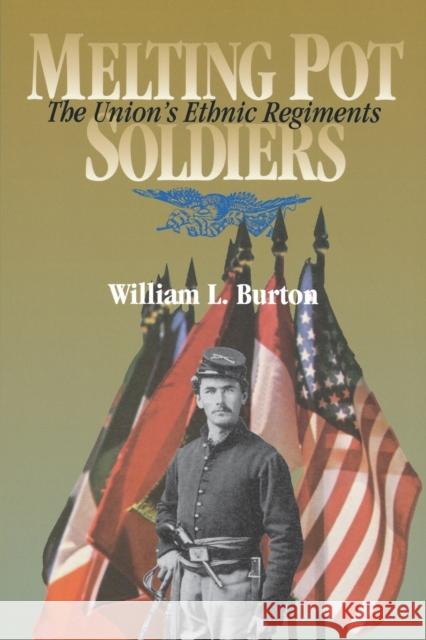Melting Pot Soldiers: The Union Ethnic Regiments » książka
Melting Pot Soldiers: The Union Ethnic Regiments
ISBN-13: 9780823218271 / Angielski / Twarda / 1998 / 282 str.
Melting Pot Soldiers: The Union Ethnic Regiments
ISBN-13: 9780823218271 / Angielski / Twarda / 1998 / 282 str.
(netto: 334,48 VAT: 5%)
Najniższa cena z 30 dni: 351,20
ok. 22 dni roboczych.
Darmowa dostawa!
Melting Pot Soldiers is the story of the way immigrants responded to the drama of the Civil War. When the war began in 1861, there were, in most states in the North (primarily from Western Europe), large populations of immigrants whose leaders were active in American politics at the local, state, and national levels. Just as native-born Americans, both individually and collectively, reacted to war, so did these newcomers. A charicteristic feature of the formation of the Union armies was the role played by politicians in the recruitment of the regiment, the basic unit of the army. Ethnic politicians (and a few were women ) like their native-born counterparts, actively recruited young men into regiments- in this case regiments based upon the country of origin of the recruits. There were dozens of such regiments, mostly German and Irish, but also a Scandinavian unit, a polygot outfit, and there was an attempt to form a Scottish regiment. AS the war progressed and casualties mounted, these regiments gradually lost their ethnic composition. Ethnic entreprenuers were the key figures in the organization of these regiments, and such men ordinarily intended to parlay their military service into a post-war political career. Burton examines the impact ethnic entreprenuers had during the war, both by their key role in the organization of their regiments and by their post-war political careers.











